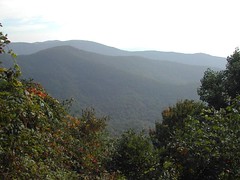Factchecking
What can help stop the misconceptions that result in the lack of civic understanding that causes the test results shown in the previous posting?
As a news researcher, my policy was to never answer a question without checking the facts first. (Difficult at the times when someone yells a question across a desk and you're sure you know the answer, but necessary anyway.)
Who's replacing -- or using -- the news researchers in the public discourse these days?
There's a sudden proliferation of web sites that are doing just that, especially as this election seasons approaches. First around was, of course, FactCheck.org , which is funded by Annenberg Public Policy Center and says its goal is 'Holding Politicians Accountable'.
Says FactCheck: Maybe It's a Trend, referring to the emergence of Politfact (mentioned here earlier), from Poynter's CQ and St. Pete Times, and the new FactChecker blog from WashingtonPost.com (which I cited Wednesday).
Now FactCheck.org may have help for the education problem: FactCheckEd.org, which offers help to students and professors on how to determine truth. Check out Straight from the Source, for example, which tells how to trust web sites; and Don't be fooled: Tools of the Trade, for more guidance.
On this topic, I've received a copy of a new book, Consider the Source, by two young journalists whose website is The Reporters' Well. This looks like a very useful exercise in determining the value of news and information sites, and I'll have more to say on this once I've read it.
As a news researcher, my policy was to never answer a question without checking the facts first. (Difficult at the times when someone yells a question across a desk and you're sure you know the answer, but necessary anyway.)
Who's replacing -- or using -- the news researchers in the public discourse these days?
There's a sudden proliferation of web sites that are doing just that, especially as this election seasons approaches. First around was, of course, FactCheck.org , which is funded by Annenberg Public Policy Center and says its goal is 'Holding Politicians Accountable'.
Says FactCheck: Maybe It's a Trend, referring to the emergence of Politfact (mentioned here earlier), from Poynter's CQ and St. Pete Times, and the new FactChecker blog from WashingtonPost.com (which I cited Wednesday).
Now FactCheck.org may have help for the education problem: FactCheckEd.org, which offers help to students and professors on how to determine truth. Check out Straight from the Source, for example, which tells how to trust web sites; and Don't be fooled: Tools of the Trade, for more guidance.
On this topic, I've received a copy of a new book, Consider the Source, by two young journalists whose website is The Reporters' Well. This looks like a very useful exercise in determining the value of news and information sites, and I'll have more to say on this once I've read it.
Labels: news research





0 Comments:
Post a Comment
<< Home